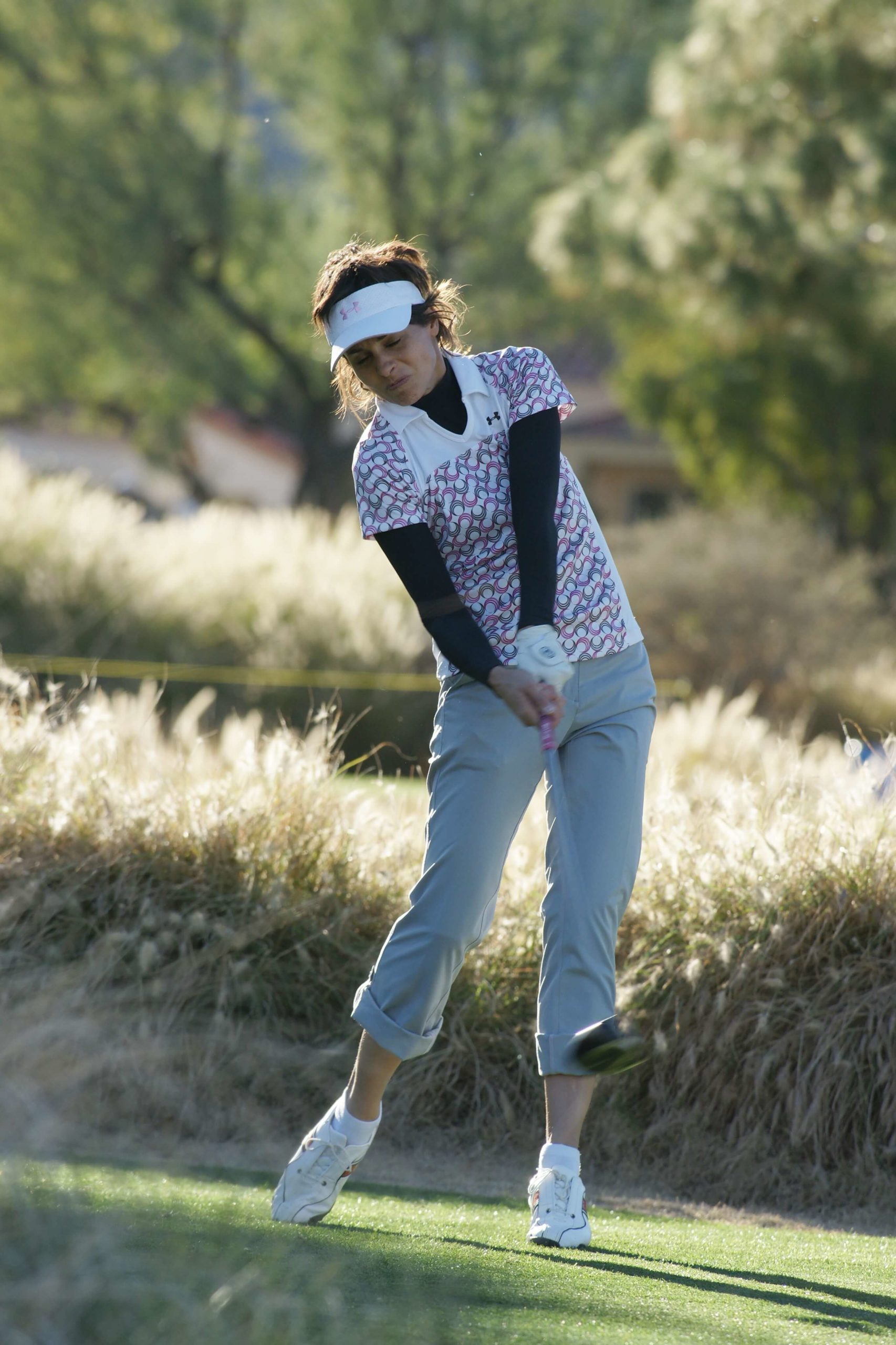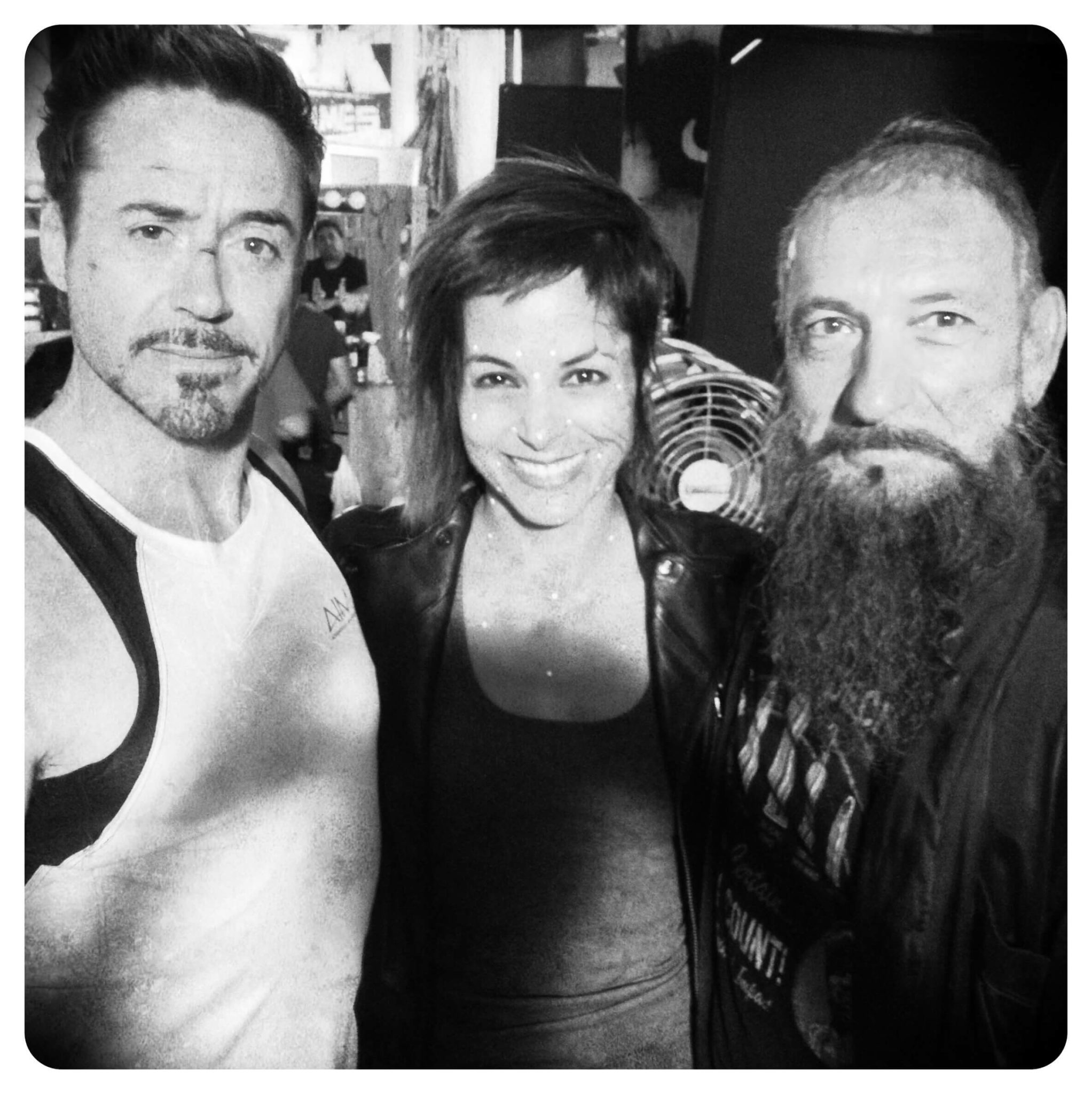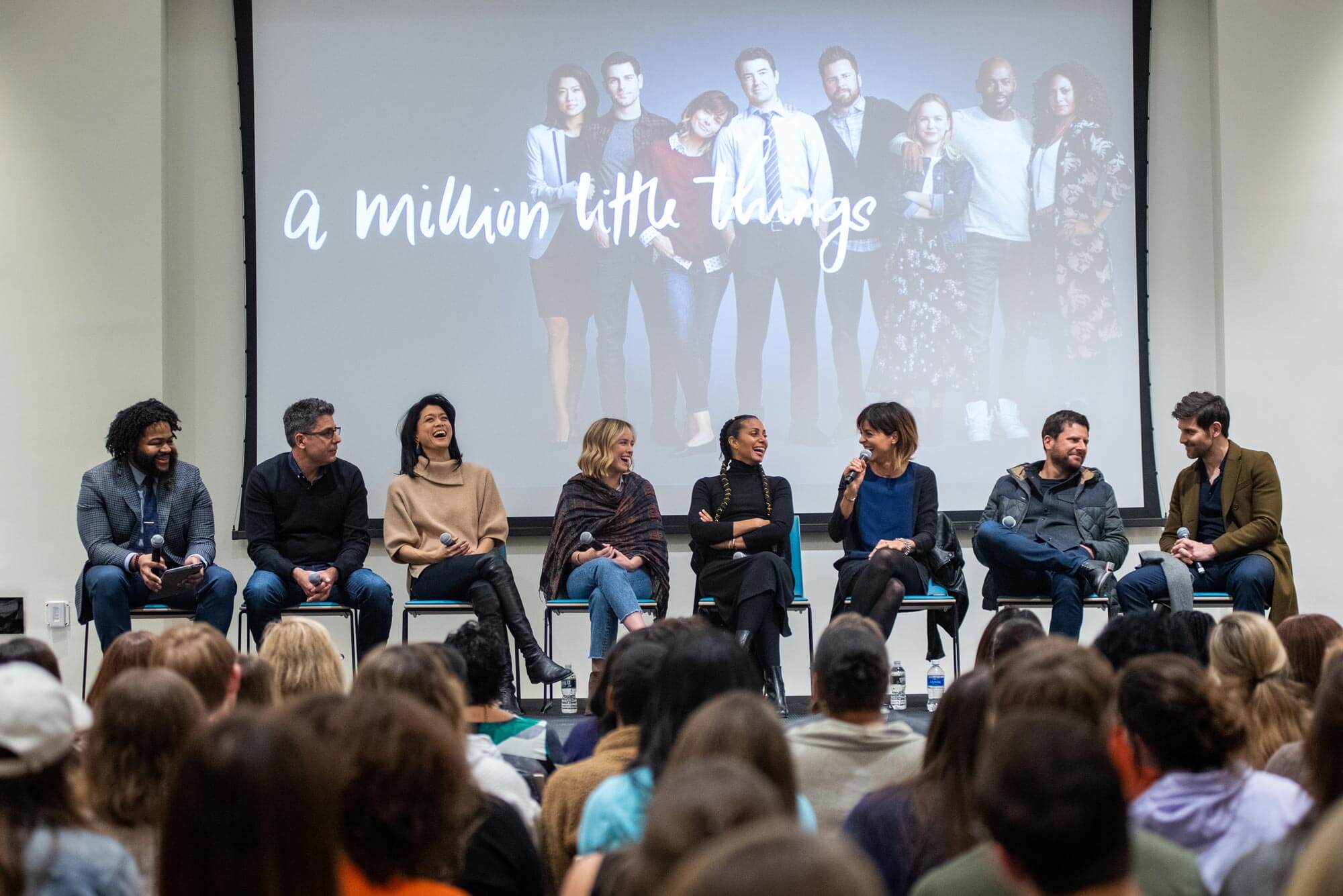A Personal Playbook for Life
Being an ‘outsider’ helped actor Stephanie Szostak ’94 find herself
January 11, 2024
By
Claire De Lisle M.B.A. ’21
“It feels so vulnerable to talk about myself,” says Stephanie Frankel Szostak ’94 in her French accent, smiling with a hint of embarrassment into the laptop camera.
She has just finished a five-season run in ABC’s “A Million Little Things,” after appearing in movies including “The Devil Wears Prada,” “Dinner for Schmucks” and “Iron Man 3,” but getting there wasn’t easy. Hers is a story of discovering and rediscovering herself.
Raised in Paris, she enrolled at William & Mary, overcoming cultural and language barriers to earn a marketing degree and play on the women’s varsity golf team. She then took a chance on New York City, where at age 29 she attended her first acting class. Despite a rocky start, she kept at it, building a career in a highly competitive space.
She has now published her first book, “Self!sh: Step Into a Journey of Self-Discovery To Revive Confidence, Joy, and Meaning,” in partnership with the mental health advocacy nonprofit Give an Hour. In the book, she shares a piece of her personal story, including what she calls one of her “epic thoughts”: “I come from a different culture; I think differently. I bring value to this team.”
Szostak came to this mantra about five years ago, but it’s something she could have used when she was a student at William & Mary. Her father, who is American, took her to look at colleges on the East Coast.

“In France, you don’t have liberal arts education. And you don’t have college sports, either. And I didn’t know what I wanted to study, and I also wanted to continue playing golf competitively, so coming to the States made sense,” she says.
After visiting William & Mary and Colonial Williamsburg, she fell in love with Williamsburg. She applied, was accepted and moved into Yates Hall.
Her freshman year was hard, between the culture shock, the language barrier and feeling like an outsider. At first, she cried every day in her room.
One of her first classes was Psychology 101, but she failed her final. She had never taken a multiple-choice test before, and though she had studied the material, she had trouble narrowing down the answers. A sympathetic professor turned the situation around.
“I went to the professor after, and I said, ‘I don't understand why I failed. I assure you I know this really well.’ And he was amazing. He went through the questions with me, and he was like, ‘Yes, you do know the material — you just think too much,’” she says. “He let me write a paper instead. I got an A.”
A professor who taught English as a Foreign Language invited her to her house for tea and helped her learn the nuances of writing papers in English, “which is so very different from the dissertation model taught in France,” she says, laughing.
Her teammates and coaches on the women’s varsity golf team were also a wonderful source of friendship and support.
“I often felt quite lonely, but just being part of the team and having a structure around daily life and practices was really helpful,” she says. “There was so much laughter when we were traveling, too.”
Around that time, her older brother became very ill. He had struggled with substance abuse and Szostak learned that he was HIV positive. She was unsure of how to confide in anyone and felt isolated.
Wanting to be closer to home, Szostak studied abroad at the American University of Paris for her sophomore year. There, she was able to spend time with her brother before he passed away at age 28. She also made friends with American students, including Britt Szostak, who would later become her husband. By the end of the academic year, she was ready to give William & Mary a second try.
“My freshman year at William & Mary is one of my greatest achievements, because it was a really hard moment, but I stuck it out and I grew from it. I learned that any new environment can be challenging and lead me to felling like an outsider. That’s where my epic thought comes in handy,” she says.
When she returned to William & Mary, she lived in Reves Hall and then the French House. She made friends with American and international students.
She became a business major, focusing on marketing, hopeful that the degree would give her options. When she graduated, she moved to New York City and took an office job at Chanel marketing skin care products. She didn’t like the job much, but she loved the city, and eventually felt at home there.

“I love being a foreigner, living in a foreign country, even though in the beginning it’s hard. It allows you to find your own way, to get away from the expectations of what you are supposed to do because of your culture and upbringing. You are thrown into a whole new environment, and in a way that gives you a lot of freedom to do things differently,” she says.
At age 29, having never acted before, she answered a “small inner voice” that told her to give it a shot. She signed up for an acting class. She didn’t get up on the stage at first — she just listened and learned until she worked up the courage to try it.
When she gave her first monologue, she realized that by portraying someone else, she had found a way to access a part of herself that had otherwise been buried.
“I felt this true connection to myself. I think a lot of actors find it’s easier to reveal ourselves when we are hidden behind another character,” she says. She took to heart the words of the legendary theater coach Uta Hagen, “Instead of losing yourself in the part, find yourself in the part.”
For the first 10 years of her acting career, she says she was motivated by feeling like the underdog. Then, suddenly, her career picked up. She was working with the likes of Meryl Streep and Steve Carell, and as the roles and sets got bigger, that feeling of being an outsider resurfaced. She started putting much more pressure on herself and doubted that she was good enough.
“Something I’ve struggled with since I was little is when I’m the only one who doesn’t know something in a group. It makes me feel like ‘Oh my gosh, I’m dumb. They are going to think I’m dumb. I don’t fit in. I don’t belong.’ Working on my mindset for the past 10 years, learning practices and tools, like crafting epic thoughts, has helped me better navigate those moments and ultimately embrace opportunities that come with any new environment.”

It was on the set of “A Million Little Things” that she connected with the founder of Give an Hour, Barbara Van Dahlen. The show dealt with depression, suicide and other mental health concerns — issues close to Szostak’s heart after experiencing her brother’s struggles. Van Dahlen was a consultant to the writers and producers.
Szostak told Van Dahlen about her playbook that she uses daily for her mental wellbeing — much like a playbook a coach might use, but for an individual to use to better respond and thrive in the face of adversity.
“If we don't have a game plan for our daily state of mind, our daily life, then we’re going on autopilot. When we are living like that, we are more vulnerable to whatever external stressors are happening that day, and our own internal stressors,” she says. “So why not have something to help us respond better to whatever's coming at us that day?”
That discussion turned into a series of webinars during COVID-19, and then the book “Self!ish,” which came out on Oct. 10.
The book is structured as a step-by-step workbook for readers to answer a series of guided prompts, culminating with the creation of their own personal playbook. It is interspersed with personal stories from people affiliated with Give an Hour and scientific context for each exercise from mental health professionals. The accompanying app will be released soon to provide readers with a platform to create digital versions of their playbooks.
“You need to really understand who you are in order to have the guts to do the things you want. That’s one of the reasons why the book is called ‘Self!sh,’ because it’s about having the courage to live the life that you want. Your playbook will give you a tool to pause and shift your focus back to what serves you well, so you can better respond to the day — and hopefully bring more of what you cherish and value to the world and those around you.
“Your playbook is private, for you and only you,” says Szostak. “In an age where everything is public and social, it’s a tool to quiet down the noise and reconnect to the whole of who you are.”